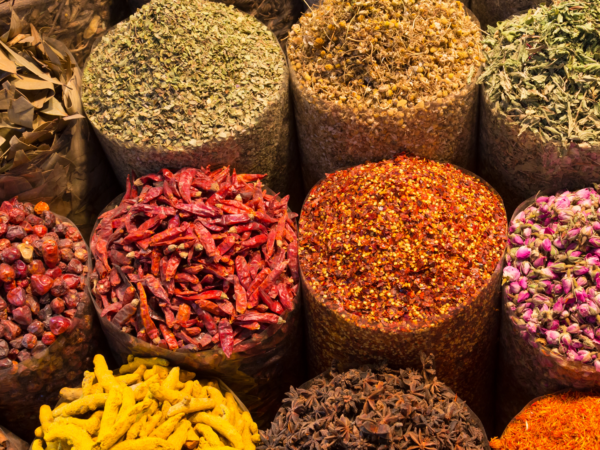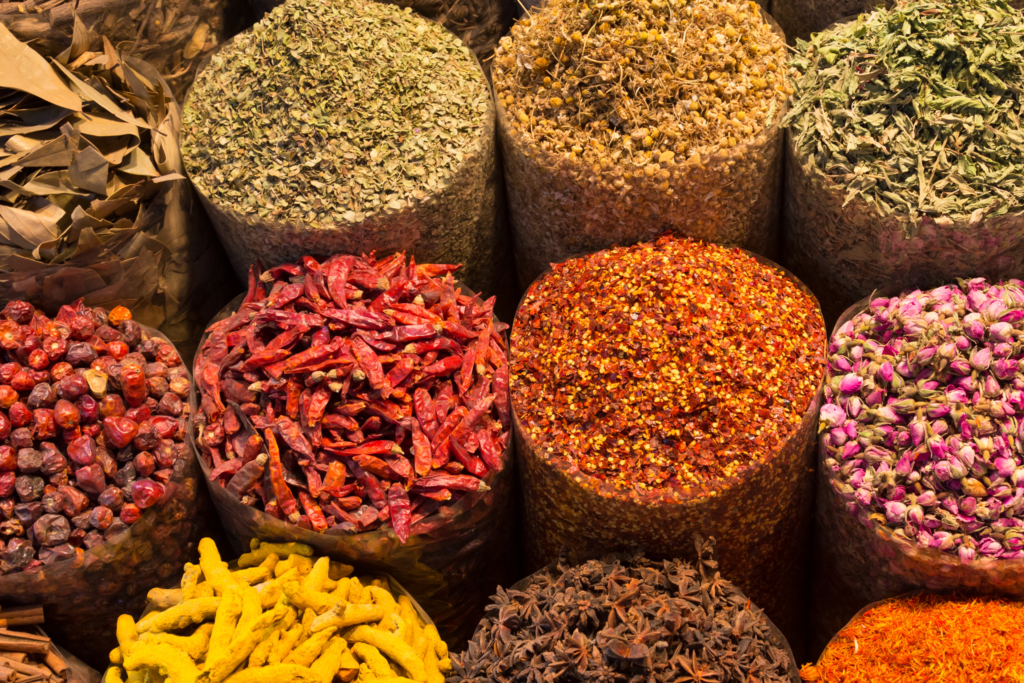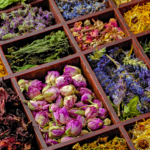

For centuries, Africa has been a treasure trove of vibrant flavors, aromatic spices, and culinary traditions that captivate the world. Today, African spices are in high demand, with companies worldwide importing these prized ingredients to elevate their offerings. From the fiery kick of Ethiopian berbere to the warming notes of Nigerian alligator pepper, African spices not only enhance the taste of dishes but also bring a host of health benefits to the table. Here’s why African spices are considered the best in the world.
Africa: A Continent Rich in Spice Heritage
The story of African spices is rooted in its diverse landscapes, ranging from the fertile soils of the Rift Valley to the tropical coasts of Zanzibar and Madagascar. These unique environments create the perfect conditions for growing spices that are rich in flavor, aroma, and nutritional value.
The continent’s spice trade is steeped in history, with routes connecting Africa to Asia, the Middle East, and Europe for centuries. Today, African spices continue to be celebrated for their unmatched quality and versatility.
What Makes African Spices Exceptional
-
Unique Flavor Profiles
African spices offer bold and complex flavors that are hard to replicate.- Berbere (Ethiopia): A spicy and aromatic blend of chili peppers, garlic, ginger, and other seasonings.
- Grains of Paradise (West Africa): A peppery spice with citrus and floral undertones.
- Vanilla (Madagascar): Known as the world’s finest vanilla, with a rich, creamy flavor.
- Cumin and Coriander (North Africa): Integral to Moroccan tagines and other dishes.
-
Unparalleled Freshness
Many African spices are grown organically and harvested by hand, preserving their potency and freshness. Small-scale farming practices ensure attention to quality at every step. -
Cultural Significance
Spices are deeply woven into Africa’s culinary and medicinal traditions. They are not just ingredients but a reflection of the continent’s history, culture, and innovation. -
Sustainability and Ethical Sourcing
African spice producers emphasize sustainable practices, ensuring that farming benefits local communities while protecting the environment.
Health Benefits of African Spices
Beyond their flavor, African spices are celebrated for their health-boosting properties:
-
Anti-Inflammatory Properties
Spices like turmeric and ginger are known for their ability to reduce inflammation and support joint health. -
Rich in Antioxidants
Many African spices are packed with antioxidants that combat free radicals, reduce the risk of chronic diseases, and promote healthy aging. -
Digestive Aid
Cardamom, cumin, and fennel are common in African cuisine and help improve digestion and reduce bloating. -
Boosts Immunity
Chili peppers and garlic, staples in African spice blends, contain compounds that strengthen the immune system and fight infections. -
Supports Heart Health
Spices like cinnamon and cloves help regulate blood sugar levels and reduce bad cholesterol, promoting cardiovascular health. -
Natural Energy Boosters
African pepper varieties like alligator pepper are known for their invigorating properties, making them a natural alternative to caffeine.
” Embrace the richness of African spices and let their unparalleled quality bring life to your cuisine. ”
How African Spices are Produced
The journey of African spices from farm to table is a testament to craftsmanship and care:
-
Cultivation
Farmers use traditional and sustainable methods to grow spices in nutrient-rich soils, often without synthetic pesticides or fertilizers. -
Harvesting
Spices are handpicked at the peak of their ripeness to ensure maximum flavor and quality. -
Drying and Processing
Many spices are sun-dried to preserve their natural oils and aromas. Processing often involves grinding, blending, or fermenting to create spice mixes like harissa or peri-peri. -
Packaging and Export
African spices are meticulously packaged to retain their freshness during export, meeting the highest international quality standards.
Why Companies Are Turning to African Spices
-
Demand for Authentic Flavors
As global consumers embrace diverse cuisines, African spices offer the authentic and unique flavors they seek. -
Rising Popularity of Ethnic Foods
African-inspired dishes are gaining popularity in restaurants and homes, driving demand for traditional spice blends. -
Focus on Health and Wellness
With their natural health benefits, African spices appeal to health-conscious consumers. -
Sustainability and Fair Trade
Companies value the ethical sourcing and environmental stewardship associated with African spice farming. -
High-Quality Standards
African spices are prized for their exceptional quality, ensuring they stand out in the global market.
Conclusion: A World of Flavor from Africa
African spices are more than just ingredients—they are an experience. They connect us to the land, the people, and the rich culinary traditions of Africa. With their unmatched flavor profiles, health benefits, and ethical production, it’s no wonder that companies worldwide are turning to Africa for their spice needs.
For food enthusiasts, African spices are a gateway to a world of vibrant flavors and aromas. Whether it’s the fiery heat of peri-peri or the soothing warmth of cinnamon, African spices transform ordinary dishes into extraordinary culinary experiences.
As global demand for authentic and high-quality spices continues to grow, Africa’s role as the heart of the spice trade remains as strong as ever. Next time you season your meal, remember: the best flavors often come from Africa.
Embrace the richness of African spices and let their unparalleled quality bring life to your cuisine.



